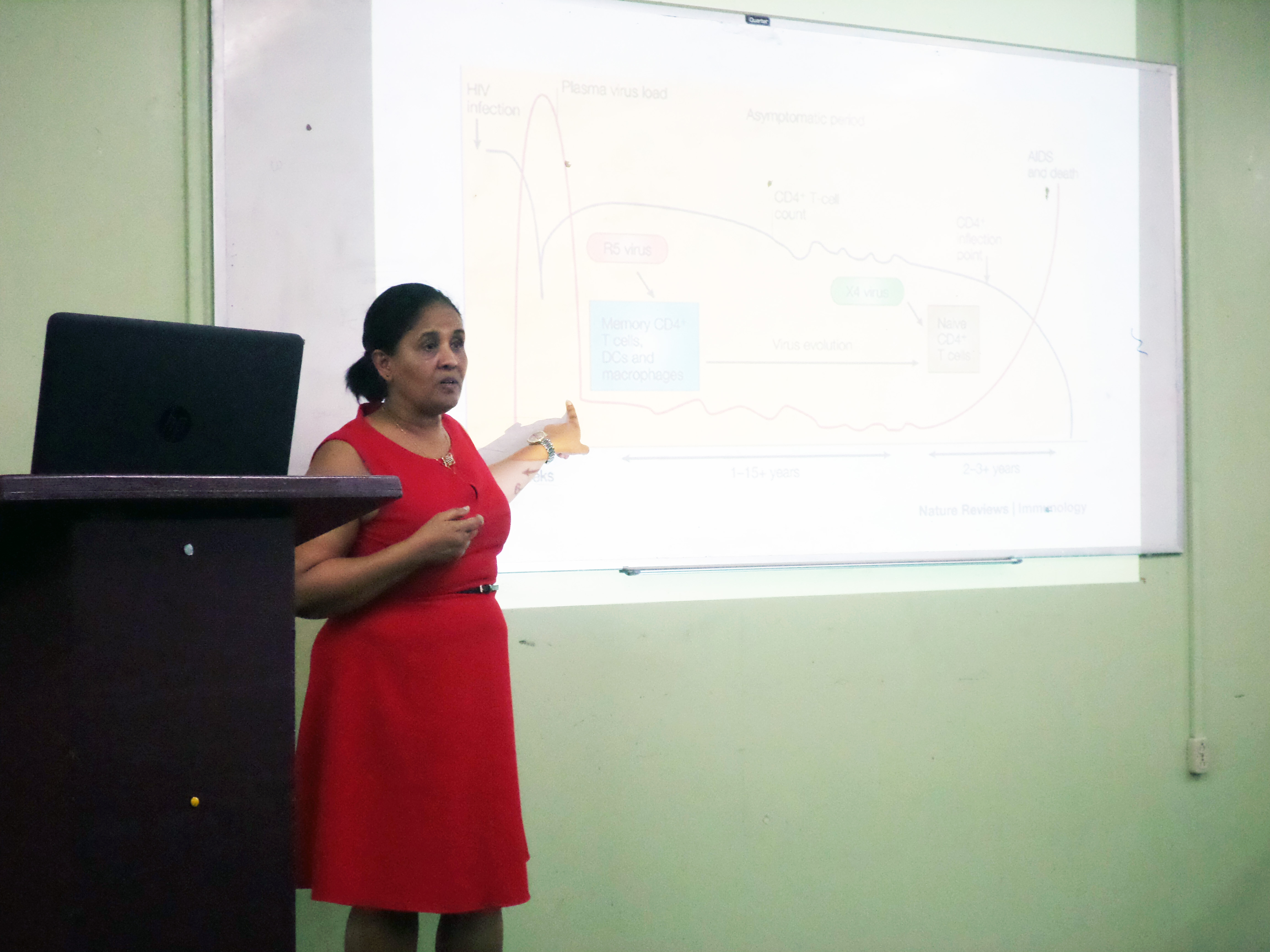
PANCAP K4Health Project conducts HIV Information Session at University of GuyanaApproximately 40 students exposed to knowledge on HIV and AIDS Global Targets and utilizing integrated marketing and communication for stakeholder awareness and advocacy.
The PANCAP Knowledge for Health Project conducted an HIV information session with approximately 40 students of the Centre for Communication Studies, University of Guyana.
Dr Shanti Singh-Anthony, Knowledge Coordinator exposed participants to knowledge on the basics of HIV and AIDS, the global and regional HIV epidemiology, HIV diagnosis, disease progression and management and current concepts and frameworks such as the 90-90-90 Targets and Sustainable Development Goals (SDGs) 2030 Target for ending AIDS.
Mr Timothy Austin, Communications Specialist, PANCAP Coordinating Unit provided illustrations of PANCAP’s use of an integrated marketing and communications strategy to effectively share relevant knowledge and information on the region’s response to HIV and AIDS with a wide range of stakeholders.
Participants were also provided with an illustration of the PANCAP Digital Strategy for website content creation and management of PANCAP’s online platforms.

WHAT IS PANCAP?
PANCAP is a Caribbean regional partnership of governments, regional civil society organisations, regional institutions and organisations, bilateral and multilateral agencies and contributing donor partners established on 14 February 2001. PANCAP provides a structured and unified approach to the Caribbean’s response to the HIV epidemic, and coordinates the response through the Caribbean Regional Strategic Framework on HIV and AIDS to maximise efficient use of resources and increase impact, mobilise resources and build the capacity of partners.
What are the Global AIDS Strategy 2021–2026 targets and commitments?
If targets and commitments in the strategy are achieved:
- The number of people who newly acquire HIV will decrease from 1.7 million in 2019 to less than 370 000 by 2025
- The number of people dying from AIDS-related illnesses will decrease from 690 000 in 2019 to less than 250 000 in 2025.
- The goal of eliminating new HIV infections among children will see the number of new HIV infections drop from 150,000 in 2019 to less than 22,000 in 2025.
What are the 95-95-95 Targets for ending AIDS?
- 95% of People Living with HIV know their HIV status;
- 95% of people who know their status on treatment; and
- 95% of people on treatment with suppressed viral loads.
HELPFUL LINKS:
Global AIDS Strategy 2021–2026, End Inequalities, End AIDS
https://pancap.org/pancap-documents/global-aids-strategy-2021-2026-end-inequalities-end-aids/
Caribbean Regional Strategic Framework on HIV and AIDS (CRSF) 2019-2025
https://pancap.org/pancap-documents/caribbean-regional-strategic-framework-2019-2025/
